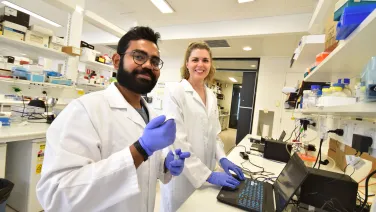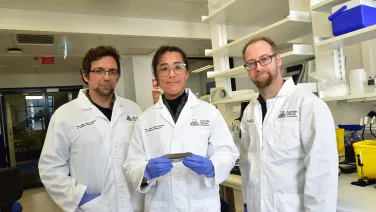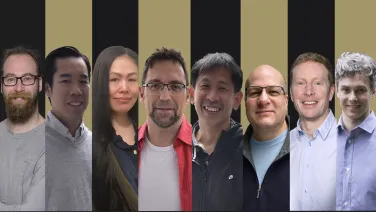
The Eyras Group - Computational RNA Biology
The Eyras Group is working to understand the biology of RNA and cancer using computational methods.
Research themes
About
The Eyras Group is working to understand the biology of RNA and cancer using computational methods. It develops machine learning methods to identify new signatures of therapeutic vulnerability in cancer, and develops new algorithms to facilitate the systematic implementation of long-read sequencing for precision medicine, and for the study model and non-model organisms.
Differential RNA processing can characterize relevant physiological processes but remain largely unexplored for their role in disease onset and response to therapy. We investigate RNA processing alterations in and how they can help to understand cell transformation, metastasis and therapy resistance. We develop computational methods to study and uncover new molecular mechanisms and to facilitate the analysis of patient samples at a massive scale.
RNA sequencing is becoming more affordable and easier to carry out systematically for many samples, even at small labs. In particular, long-read sequencing provides many advantages to study transcriptomes, but alternative splicing complexity and error rates present many challenges for the processing and interpretation of the data. We are developing algorithms to study RNA biology from long-read data, to enable the study of the transcriptome dynamics across individuals and in model as well as non-model species. We are especially interested in the application of these methods in cancer precision medicine.
We also develop machine learning methods to process and interpret high-throughput genomics data. These methods include applications to the study of long-read transcriptomics, the discovery of signatures of cancer progression and therapy resistance, and selection of predictive variables from large heterogeneous datasets.
In summary, our aim is to develop new algorithms to enable new technologies for their application to study RNA and to address open questions in health, ecology, industry and society; and make them widely available to the scientific community.












